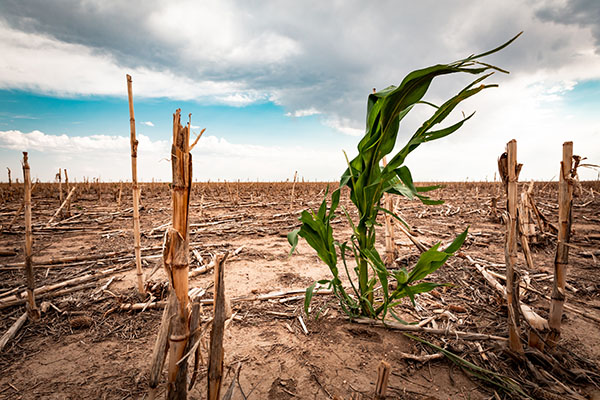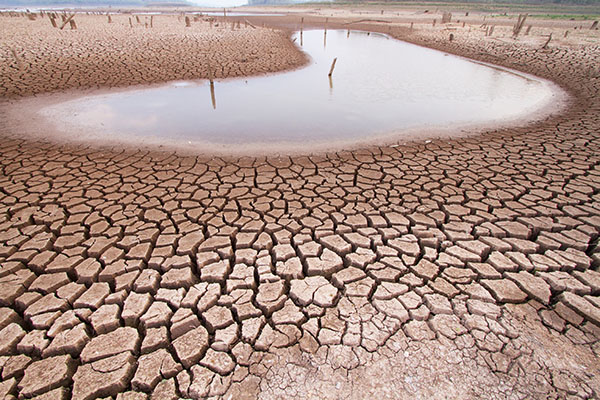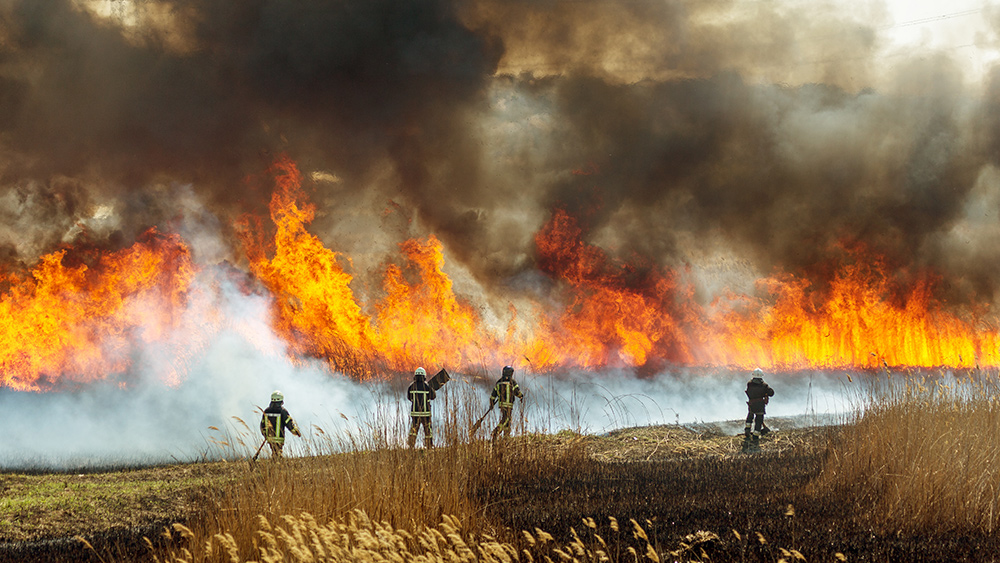 Parler
Parler Gab
Gab
- Nigeria’s water crisis stems from institutional negligence, deforestation and poor agricultural policies—not climate change. Historical droughts (e.g., 1970s Sahel crisis) were natural, but current challenges are worsened by unsustainable land use and policy failures.
- Media and NGOs often blame climate change for shrinking water resources, but evidence points to human actions—like upstream dam projects, excessive corn irrigation and unregulated groundwater drilling—as primary causes.
- Rapid tree-cover loss and unchecked borehole drilling (depleting aquifers by 15 meters in some regions) highlight governance failures, not environmental inevitability. Population growth exacerbates demand, but sound management could mitigate the crisis.
- Corruption and shortsighted policies hinder solutions. Unused World Bank funds for water infrastructure and a failure to shift from water-intensive crops (e.g., corn to sorghum) reveal systemic incompetence.
- Sustainable fixes include reforestation (modeled on Ethiopia’s success), rainwater harvesting, borehole regulation and reviving traditional drought-resistant farming. The crisis is solvable—but only through governance overhaul, not climate rhetoric.
Cyclical droughts: A natural legacy, not new climate crisis
Historical records show Nigeria’s northern regions have endured recurring droughts since the early 20th century, long before modern climate change concerns. The devastating Sahel drought of the 1970s and dry spells in the ‘90s/2010s were tied to natural rainfall variability, not shifting climatic “trends.” Linnea Lueken of the Arthur B. Robinson Center emphasizes these cyclical patterns, stating, “Today’s water struggles stem from population growth, unsustainable land use—and critically, poor decisions by policymakers—not a new climate apocalypse.” The droughts of the 20th century, predating contemporary debates on climate, prove such challenges are not novel.Sowing confusion: The climate change distraction
Corporate-backed environmental groups and international media have sought to rebrand Nigeria’s crisis as “climate-driven,” citing shrinking lakes and irregular rainfall. Yet field reports, such as those from the UN Food and Agriculture Organization (FAO), contradict this narrative. For instance:- Lake Chad’s collapse: While often blamed on climate, independent analysts attribute its 90% volume loss since 1960 to human factors: upstream dam projects by Cameroon and Niger, plus Nigeria’s reckless irrigation of water-demanding crops like corn.
- Corn’s catastrophic water use: Nigeria’s corn production has surged 91% since 1990, worsening groundwater depletion despite a 50% decline in rain-fed agriculture. “A 90% rise in corn [water demand] is pure policy failure. Nigeria’s leadership chose this crop, not the climate,“ Lueken states.
Deforestation and drilled groundwater: Man-made ecological time bombs
Satellite data reveals Nigeria’s tree cover has vanished at an alarming rate—not due to desertification alone, but unregulated farming expansion. The FAO notes that 80% of Nigerian smallholders rely on unpermitted boreholes, depleting aquifers by 15 meters in regions like Kano and Katsina. Analysts argue that Nigeria’s government prioritizes oil profits over water security, letting farmers drill without oversight. "This is management failure, not Mother Nature.” Meanwhile, population growth (up 200 million since 1990) and livestock expansion have strained existing resources, but even this surging demand is manageable were governance structures sound.Political apathy amplifies the crisis
Nigeria’s GDP growth (3% annually) appears buoyant, yet economic gains fuel incompetence, not reform.:[- Institutional rot: Corruption stifles irrigation project implementation. The World Bank’s $500 million pledge for water infrastructure still sits unspent, eroded by bureaucratic bloat.
- Policy shortsightedness: Over 30 years, Nigeria’s leadership has failed to pivot from corn-centric farming toward drought-surviving crops like sorghum, which need less water.
Aiming for lasting, human-powered fixes
Reforms must prioritize adaptive practices and systemic accountability:- Reforestation models: Ethiopia’s billion-tree “Green Legacy” shows that tree-planting halts desertification. Nigeria’s stalled programs could revive village-led agroforestry traditions.
- Smart farming: NGOs like the African Conservation Foundation advocate rainwater harvesting and soil preservation.
- Regulatory overhauls: Borehole regulation and high-priority importation of drought-resistant crop varieties (like Nigerian domesticated sorghum) would ease pressure on water reserves.
Deeper wells, not more climate blame
The UN warns Nigeria risks losing half its food production by 2050—but the path out depends far less on reducing CO2 than on solving political emergencies. As irrigation experts in Kano stress, “We need drip systems, not slogans about climate justice. Nigeria’s rains never caused this mess—its governors did.” The crisis is a choice: reform or collapse. The stakes could not be clearer—and the solutions, inconveniently for climate alarmists, are in Nigerian hands alone. Sources for this article include: WattsUpWithThat.com NaturalNews.com FarmingFarmersFarms.comScott Adams admits anti-vaxxers were right: ‘They Are the Winners’ in health outcomes
By Finn Heartley // Share
New study links chemtrails to elevated metals in sweat
By Finn Heartley // Share
Montana bans lab-grown meat to protect traditional ranching industry
By Laura Harris // Share
Joe Biden diagnosed with aggressive prostate cancer amid speculation about his health
By Finn Heartley // Share
Poor resource management to blame for drought in Nigeria, not “climate change”
By Ramon Tomey // Share
Ancient "Mushroom of Immortality" outperforms drugs in Alzheimer's prevention
By ljdevon // Share
Scott Adams admits anti-vaxxers were right: 'They Are the Winners' in health outcomes
By finnheartley // Share
New study links chemtrails to elevated metals in sweat
By finnheartley // Share









